“American language,” indeed, is a ghost which walks only when the lights are very low
T.S. Eliot, 1926
Although T.S. Eliot was arguably the most influential literary critic of the 20th century, for decades, scholars worked without a collected edition of his critical prose, which was scattered through the high-minded journals of his day. Such a gathering would not only have spared the split bindings of the periodicals scoured hundreds of times across library photocopiers: it would also have enabled ready cross-referencing to Eliot’s opinions on Charles Baudelaire, the relationship between prose and verse, English and American stupidity, the music hall, the churches of London, and Stravinsky — to list just some of the topics covered while he was writing The Waste Land (1922), his poetic collage of a civilisation.
This is the opening paragraph of my review of T.S. Eliot’s Collected Prose for the new issues of Prospect — you can read the rest here:
For this week’s Pinks, I thought — oh, for no reason — that I’d look at something I didn’t have room for in the review: what Eliot said about America. The essays that he preserved in his critical books, such as The Sacred Wood (1920) and For Lancelot Andrewes (1928), tended to give the impression that he was almost entirely concerned with English and European literature. This was, I think, part of his careful ongoing cultivation of an image of himself as an English writer, despite having being born and raised in America. Wyndham Lewis — the great troll of Modernist literature — mocked this habit in Men Without Art (1934) when he imagined a disagreement between two Eliots: the conservative, Anglo-Catholic “Mr. T.S. Eliot (1933)” and “this fellow (bearing his name […] an American I believe!)” who wrote The Waste Land.
The four volumes of The Collected Prose cost £50 each. Volume One is the best: it’s packed with brilliant literary journalism, witty and precise in its judgements, not yet weighed down by fame and respectability. Running up to 1928, it also includes various suggestive comments about the country Eliot left, aged 26, in 1914. Here are a few.
[Americans] like to be told that they are a race of commercial buccaneers. It gives them something easily escaped from, moreover, when they wish to reject America.
“In Memory of Henry James” (1918)
The idea of “escape” here — in a tribute to Henry James, the American novelist who settled in England — echoes the famous claim that Eliot would make the following year in “Tradition and the Individual Talent”:
Poetry is […] is not the expression of personality, but an escape from personality
We might say that one of the personal qualities Eliot was trying to “escape” in his poetry at this time was being American: Poems (1920) and The Waste Land (1922) are notable for how they exchange the claustrophobic Boston of Prufrock and Other Observations (1917) for a haunted London. In an unpublished prose poem, “The Engine” (1915), written as Eliot crossed the Atlantic to see his family after marrying an Englishwoman, Vivienne Haigh-Wood, he imagines the other passengers as a cubist nightmare of “commercial bucaneers”:
Flat faces of American business men lay along the tiers of chairs in one plane, broken only by the salient of a brown cigar and the red angle of a six-penny magazine.
The speaker of the poem then retires to his cabin to think about the ship sinking.
Eliot’s nightmare vision of the all-conquering homogeneity of American culture returns in a review of English Literature during the Last Half-Century by J.W. Cunliffe, an English professor at Colombia University. The student “text-book”, he fears, will replace all other kinds of book:
America outstrips the world in the development of the text-book; America has carried the text-book into conquests elsewhere unaspired to by that humble vehicle of instruction; in America every serious work threatens eventually to conform to the text-book decorum, and to wear the text-book uniform of bibliography and guide to Further Reading; in America instruction is a manifest of seriousness.
“The Education of Taste” (1919)
Two essays which appeared in the spring of 1922 suggests how Eliot’s feelings about English and American culture may have made their way into The Waste Land (1922), via the metaphor of organic cultivation:
You must talk about America, just as here you must talk about England: only, there are different things to say. It is necessary to pretend that England is a green and pleasant land; at present, you need not say that America is pleasant […] but you must make out that it is big, that it is new, that it contains the germs of a colossal growth.
“London Letter” (April 1922)
and
The advance of “American literature” has been accelerated by the complete collapse of literary effort in England. One may even say that the present situation here has now become a scandal impossible to conceal from foreign nations; that literature is chiefly in the hands of persons who may be interested in almost anything else; that literature presents the appearance of a garden unmulched, untrimmed, unweeded, and choked by vegetation sprung only from the chance germination of the seed of last year’s plants.
“The Three Provincialities” (1922)
Compare: “That corpse you planted last year in your garden, / Has it begun to sprout? Will it bloom this year?” (The Waste Land). Are these lines — shouted by the speaker at someone with the cartoonishly American name “Stetson” — Eliot’s way of asking whether American poetry has managed to cultivate the corpse of Eng Lit yet?
There was at least one American poet Eliot admired for being American: Marianne Moore. His review of her early work is one of the most illuminating things he ever wrote about a living poet. Its discussion of how Moore taps into a quality of socially neutralising “pleasantry” in American English — which unites “the jargon of the laboratory and the slang of the comic strip” — suggests how keenly he heard it as a mode of speech distinct from English English; a distinction that may be harder for us to hear now:
[Moore makes] a peculiar and brilliant and rather satirical use of what is not, as material, an “aristocratic” language at all, but simply the curious jargon produced in America by universal university education — that jargon which makes it impossible for Americans to talk for half an hour without using the terms of psychoanalysis, and which has introduced “moron” as more forcible than “idiot” […] She uses words like “fractional,” “vertical,” “infinitesimal,” “astringently”; phrases like “excessive popularity,” “a liability rather than an asset,” “mask of profundity,” “vestibule of experience,” “diminished vitality,” “arrested prosperity.”
“Marianne Moore” (1923)
Eliot turns again to the verbal life of his home country in an unsigned review of a book of American slang for the Times Literary Supplement from 1926. It’s perhaps not surprising that “blurb” caught his eye, as by this time he was working as a publisher at Faber & Faber, and writing much anonymous copy for book jackets — although he characteristically resisted the American instinct to “boost” (hard-selling Louis MacNeice’s debut, he told readers: “His work is intelligible but unpopular”).
We are told that there is a peculiar American vocabulary of racy popular speech […] a few [words] are pretty certain to be adopted in this country. Bootlegger is a word that has no equivalent, and is used here whenever we have occasion to refer to that industry. It is the first in the field, and will probably survive later inventions. Blurb (publisher’s notice on the wrapper or jacket of a book) is qualified by the editor himself as [an] “admirable word, indispensable.” The word dope, after an eccentric history (including the history of its derivatives: very few persons remember that doper, or horn-doper, means “individual,” “person,” whereas dopester is “tipster”), has now settled down, here as in America, to mean “poisonous or forbidden drugs” […] Certain words, like the verb to boost, and its substantive booster, reflect aspects of contemporary American life so accurately as to obtain a documentary value.
“American Prose” (1926)
The most personally revealing of Eliot’s early comments on America comes at the end of Volume One of The Collected Prose. In a short preface to a non-fiction book published by Faber, This American World by Edgar Ansel Mowrer, Eliot reflects feelingly on his sense of having a double American identity, divided between southern and northern landscapes — something, perhaps, he was only comfortable explaining in print after he had formally confirmed his status as a British citizen in 1927:
My family were New Englanders, who had been settled — my branch of it — for two generations in the South West — which was, in my own time, rapidly becoming merely the Middle West. The family guarded jealously its connexions with New England; but it was not until years of maturity that I perceived that I myself had always been a New Englander in the South West, and a South Westerner in New England; when I was sent to school in New England I lost my southern accent without ever acquiring the accent of the native Bostonian. In New England I missed the long dark river, the ailanthus trees, the flaming cardinal birds, the high limestone bluffs where we searched for fossil shell-fish; in Missouri I missed the fir trees, the bay and goldenrod, the song-sparrows, the red granite and the blue sea of Massachusetts.
“Preface” (1928)
These feelings of nostalgia for two landscapes would eventually emerge in Eliot’s poetry too: the bay and the goldenrod became
… the weak spirit quickens to rebel
For the bent golden-rod and the lost sea smellAsh-Wednesday (1930)
and the long dark river, the ailanthus trees became
I do not know much about gods; but I think that the river
Is a strong brown god […]
His rhythm was present in the nursery bedroom,
In the rank ailanthus of the April dooryardThe Dry Salvages (1941)
NOTES
For more little-known T.S. Eliot quotes, see:
and




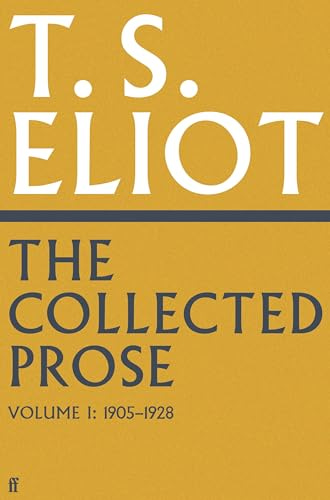
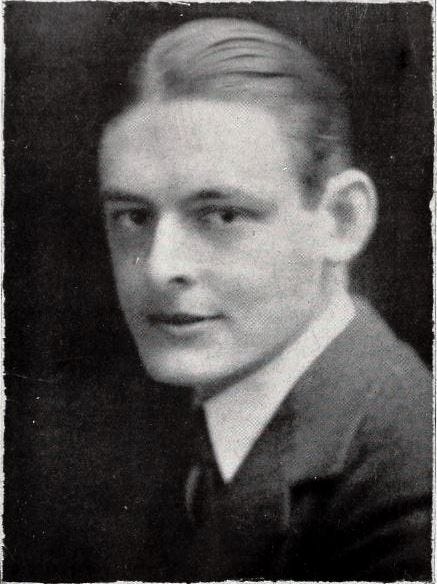
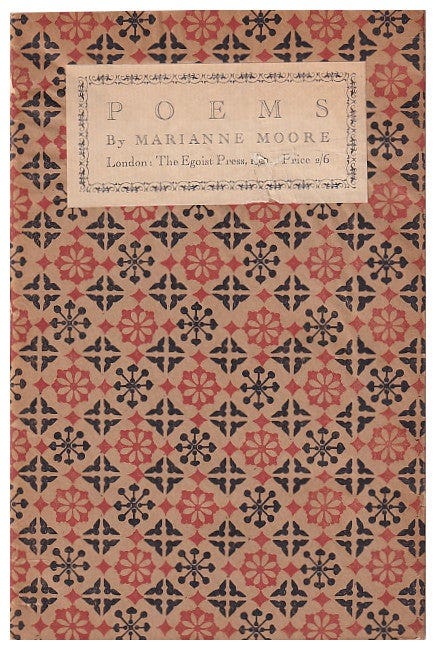
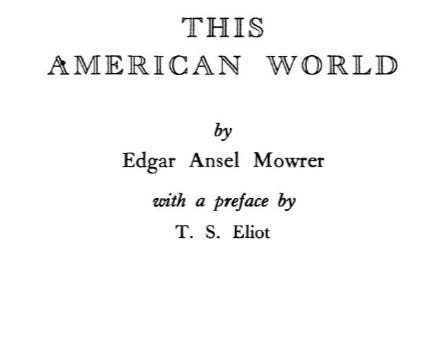

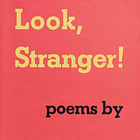
What a lovely passage by T.S. Eliot on how his dual citizenship effectively began in childhood: 'In New England I missed the long dark river, the ailanthus trees, the flaming cardinal birds, the high limestone bluffs where we searched for fossil shell-fish; in Missouri I missed the fir trees, the bay and goldenrod, the song-sparrows, the red granite and the blue sea of Massachusetts.'
Wow — astonishing to suddenly have a specific referent for that passage from Ash Wednesday, especially. It’s like a door opening up. I don’t know why, but it somehow never occurs to me to think that Eliot is drawing on material experiences or memories when he puts images like that into a poem. Perhaps it’s because he’s successfully convinced me to buy into the poem as depersonalized, as you say he intended. Thanks for this, so interesting. Look forward to reading the longer Prospect piece.